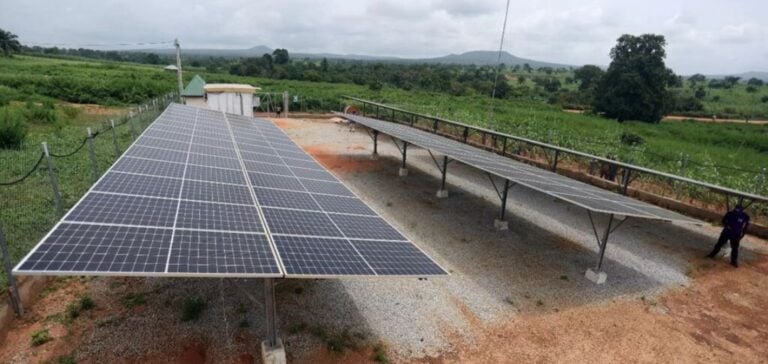ENGIE Energy Access has launched the construction of 15 solar mini-grids in Zambia’s Eastern Province. This initiative is part of the Increasing Access to Electricity and Renewable Energy Production (IAEREP) program, supported by the 11th European Development Fund and the European Union. The project aims to provide reliable electricity to underserved areas, thereby promoting local economic development.
Objectives and deployment
The project calls for the construction of 60 solar mini-grids by 2025, spread across five provinces. MySol Grid Zambia, a subsidiary of ENGIE Energy Access, is responsible for the construction, management and maintenance of this infrastructure. The first sites selected include Lusinde, Kandongwa, and Nyimba Mwana, with commissioning scheduled by the end of 2024. This project comes against the backdrop of the country’s electricity problems, which see frequent power cuts .
Financing and Partnerships
In 2023, MySol Grid Zambia secured financing of USD 7.5 million from the Facility for Energy Inclusion (FEI), managed by Cygnum Capital. This funding supports the construction of mini-grids under the IAEREP program, marking a significant step forward for the solar mini-grid sector by attracting long-term, non-recourse financing.
Impact and Development
Since setting up in Zambia in 2017, ENGIE Energy Access has expanded its presence with over 250 employees, 650 independent sales agents and more than 60 points of presence across the country. The company has already sold over 300,000 solar kits and operates a mini-grid in Chitandika. The expansion of the solar mini-grids aims to improve access to electricity for around 40,000 people, supporting the development of local businesses and the regional economy. This initiative reinforces ENGIE Energy Access’ commitment to increasing access to electricity in Zambia and supporting national electrification targets. By providing reliable, renewable energy, the project creates economic opportunities and improves living conditions in rural areas.






















